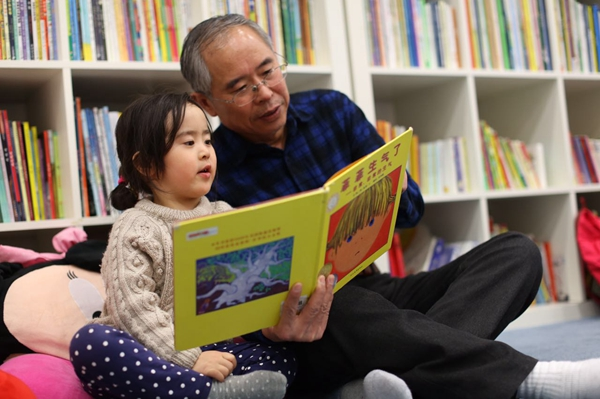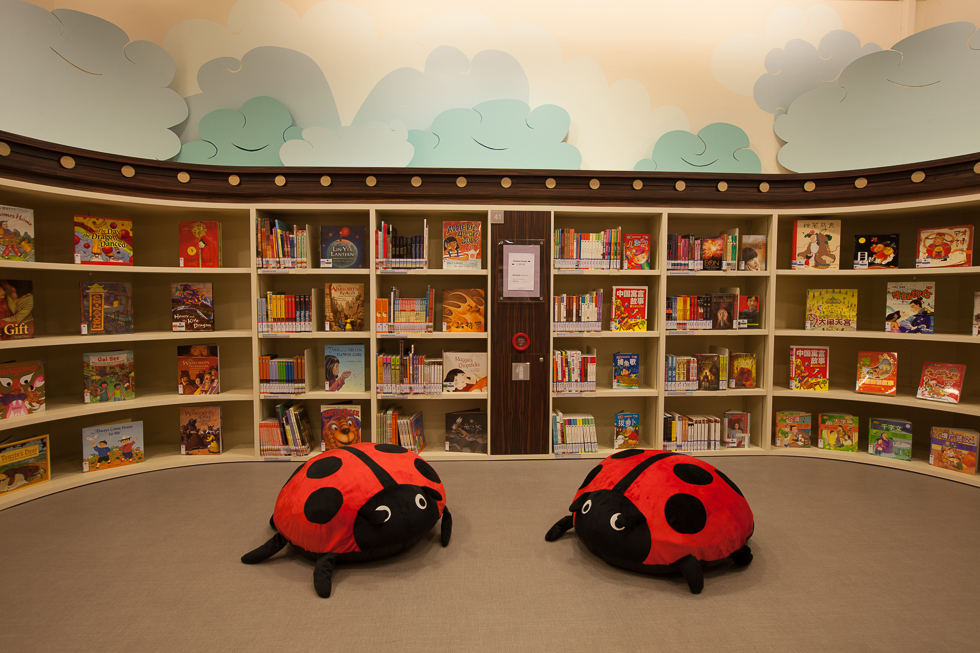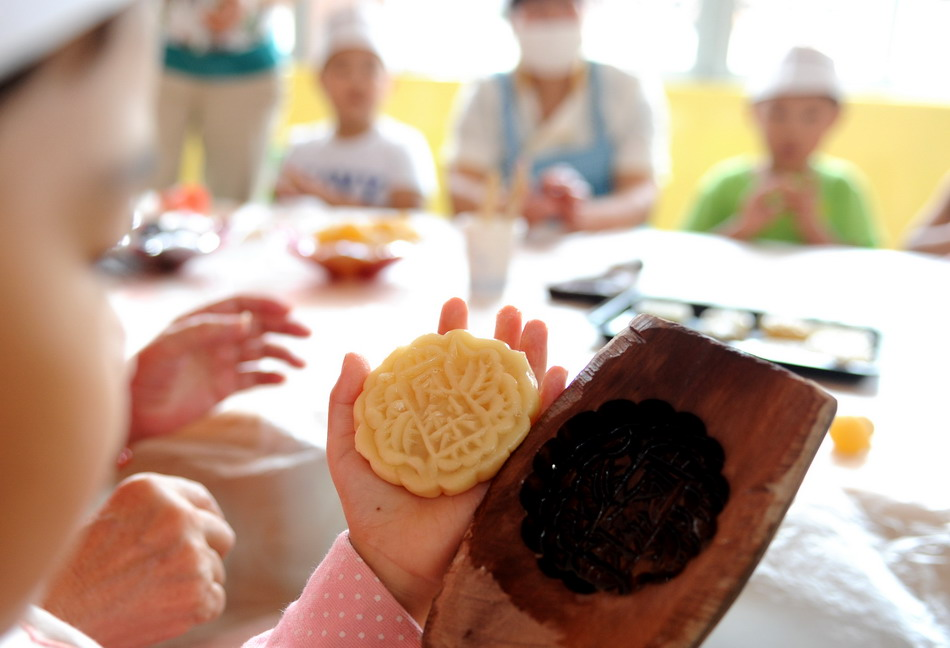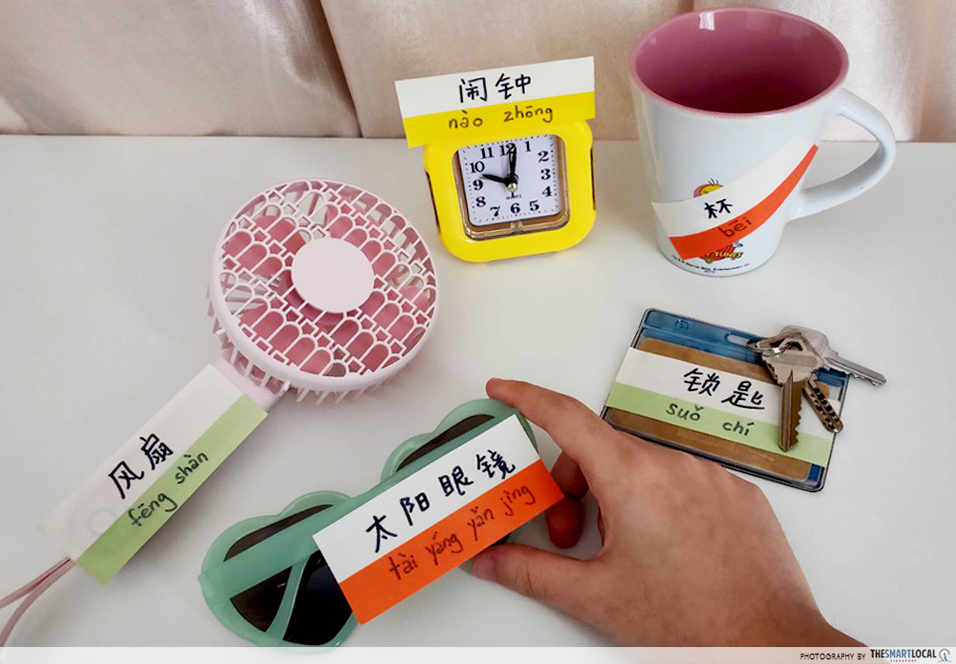How to improve Chinese language skills for kids
In our increasingly globalised world, it’s important to cultivate a strong foundation of one’s Mother Tongue from as tender of an age as possible. That said, the task is also getting increasingly difficult as mass media nowadays is flooded with Western influences.
Trust me, picking up a beginner’s guide to the Chinese language as a grown-up after years of FOMO-ing around Mandarin-speaking friends is no fun. Give our next generation a helping hand and encourage them to start young with these 8 ways for kids to improve their Chinese skills.
1. Go on an excursion to the Chinatown Point library
 Image credit: Wang Jing, AsianNewsPhoto
Image credit: Wang Jing, AsianNewsPhoto
Fostering a love for reading always helps immensely when it comes to mastering a language. Whimsical Chinese folklore tales have an added benefit in that most of them also come with a wholesome moral to the story, teaching your child positive values in a light-hearted yet educational manner.
 Image credit: M-Ply
Image credit: M-Ply
While non-mainstream children’s books written in Chinese may be a challenge to find at your nearest bookstore, Chinatown Point’s library is a treasure trove with a large emphasis on Chinese heritage and cultural stories. The gorgeous library is even decked out in traditional Chinese art, with a mini gallery introducing the young ones to ancient Chinese history.
Library @ Chinatown Point
Address: 133 New Bridge Rd, #04-12 Chinatown Point, Singapore 059413
Opening hours: Mon – Sat 11AM-9PM | Closed on Sun
Website
2. Keep a lookout for Chinese cultural classes at your neighbourhood CC
 Image credit: @sysnmh
Image credit: @sysnmh
Instead of going for the same shopping mall outings on loop every weekend, keep a lookout for activities and exhibits popping up every now and then. A good place to start is at your neighbourhood community centre, where opera, orchestra and puppetry performances are hosted on the regular. Fret not about the expense, as these classes are usually offered at reasonable rates from around $18 onwards.
Memorable bonding time with the fam coupled with the excitement of trying something new will no doubt cultivate a deeper fascination with Chinese culture, and a stronger urge to improve one’s Mandarin skills as a result. Get the ball rolling with a quick scroll through One PA’s selection of classes and shortlist some activities that your little one might enjoy!
 Image credit: Jacky Chen at CultureInCart
Image credit: Jacky Chen at CultureInCart
Seasonal occasions such as the Mid-Autumn Festival also mean there’ll be special crafts and cooking workshops for intriguing cultural staples, such as lantern-making and even mooncake-baking.
3. Label common items to help them pick up everyday vocabulary

This method exposes them to key phrases through visual association, without the stiff monotony of sitting through a flashcard memorisation session. Slap labels onto everyday objects – writing both the Chinese character as well as the hanyu pinyin – so that your children can gradually increase their Mandarin reading and speaking vocabulary over time.
To test their knowledge, spring a pop quiz upon them every now and then. If there’s one thing kids respond well to, it’s a “gaming” system where they can unlock rewards and conquer new levels of difficulty.
4. Switch the language to Chinese when they operate self-service kiosks
 Image credit: SG Trains
Image credit: SG Trains
Be it the EZ-Link top-up machine, self-checkouts at the supermarket or the ordering kiosk at fast food chains, a few uses develop muscle memory and we pretty much start operating them on auto-pilot. Since your child is already familiar with what all the buttons say and do, switch the language to Chinese for them to pick up key vocab.
 Image credit: Ali Express
Image credit: Ali Express
You’ll be surprised how fun it gets for them to learn the names of their favourite burgers, nuggets and fries order in Mandarin! Now they’ll know not just what they’re called, but be able to recognise the Chinese characters for them as well.
5. Allocate time slots to speak to them only in Mandarin

Parents who may not possess the strongest grasp of Mandarin, we hear you. While it may seem a little out of your comfort zone at first, setting designated time slots to converse exclusively in Mandarin will make a world of difference over time.
The preset practice windows prevent fatigue from exerting your brain all day to speak strictly in a language that’s not your default. It also makes it something that the child can look forward to, rather than shutting out completely if they were forced to speak pure Mandarin 24/7. Furthermore, it’ll train the mind to be flexible and able to switch between languages with ease.
6. Toggle Chinese subtitles on for their favourite TV shows

You’ll be surprised just how much vocabulary recognition can be derived from skimming subtitles at the bottom of the screen while watching telly. For your child’s TV or Netflix streaming sessions, switch on Chinese subtitles so they grow familiar to reading new characters while tuning into what’s being said.
 Image adapted from: Vidmay
Image adapted from: Vidmay
This is especially effective for words and phrases that are repeatedly mentioned, including names of characters. Chinese names aren’t usually part of the curriculum taught at school, so this is an unconventional manner of beefing up their Chinese reading capabilities beyond generic textbook teachings.
7. Get them to keep a Word Bank regularly filled with new entries
 Image credit: @chali-studio
Image credit: @chali-studio
Regularly filling in a Word Bank and not just memorising, but actively practising their new learnings is one of the most sure-fire ways to boost one’s vocab. In the case of Mandarin-speakers, kids get the added bonus of being able to test their character writing skills, solidifying their knowledge of basic strokes a.k.a 笔画 (bǐ huà).
Encourage them to make a habit out of jotting down unfamiliar words and phrases they hear along the way, be it through media consumption or everyday conversations.
8. Enrol them into a Mandarin-speaking learning environment as early as possible
 Image credit: Masterminds
Image credit: Masterminds
Early education serves as a crucial stage of children’s learning, their brains are pretty much an ultra-strong sponge that’s able to pick up and retain boundless amounts of new info.
Now just imagine if all their subjects are taught in Mandarin. It’d be a breeze to not just grasp keywords and phrases, but develop confidence in higher-level comprehension and self-expression as well.
Improve your child’s Mandarin at a young age with the Masterminds Chinese Immersion Programme
 A Chinese Speech & Drama class in session at Masterminds
A Chinese Speech & Drama class in session at Masterminds
Image credit: Masterminds
Selecting a preschool for your precious child can get overwhelming, especially if you’ve identified a strong foundation of Mandarin reading, writing and listening skills to be a priority.
The nursery curriculum at Masterminds comprises a Chinese Immersion Programme, where classes are conducted completely in Mandarin.
Offered to kids as young as 18 months old, the programme is an effective way to impart Mandarin skills upon children without the rote rigour of forced memorisation.
You’ll get to relish not only the peace of mind that your child is in good hands, but eager anticipation of his or her steadily evolving Mandarin skills at such a tender age.
Find out more about the Masterminds Chinese Immersion Programme here
Also read:
- Things to do with your kids in Singapore
- Baby gyms in Singapore
- Online parenting groups in Singapore
- Educational visits to Singapore factories
This post was brought to you by Masterminds.
Cover image (right) adapted from: AliExpress
